
Book Reviews February 2024
January was a crazy month of meeting deadlines, endless medical appointments, and being exhausted by the time dinner was done and cleaned up. Eight hours of reading through a manuscript and working your way through corrections is rewarding, but tiring. So, I vegged out on YouTube because indulging in books that required extra thinking power was beyond me.
Rather than watching countless hours of talented singers and a few random videos, I lamented my issue to my local writing group, who pointed out that what I really needed was some predictable fluffy romance reads. I don’t hate romance, but it’s not my first choice, because it is incredibly predictable. So, I opened the floor for suggestions, and started loading up Libby with some holds while discussing the pros and cons of Fourth Wing, which I hadn’t read at the time of the discussion.
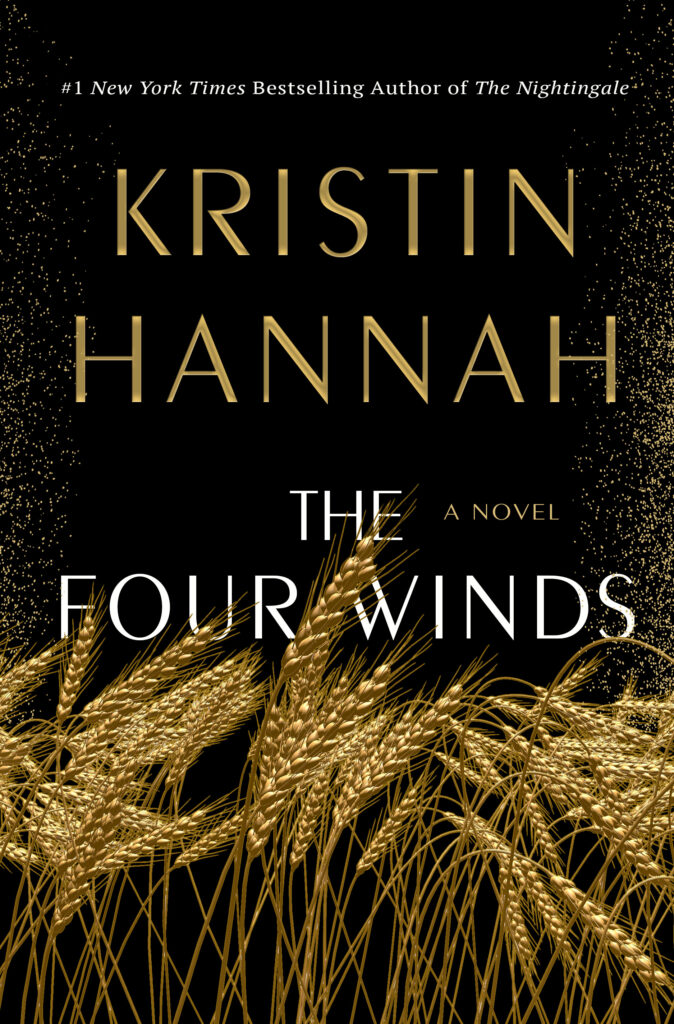
The Four Winds by Kristin Hannah — At our last Writer’s Party in November, someone mentioned this book, and asked if I’d read it. I hadn’t, but I was familiar with the author. When I got home, I put the book on hold, and it came in just after I finished up with my Christmas reads.
Elsa, unloved and unwanted at home, falls for a handsome man called Rafe, becomes pregnant by him, marries him, and is welcomed [over time] into his family. They have two children and a thriving life on the Martinelli farm, but Rafe isn’t happy. He dreams of seeing the world, and he feeds that dream to their daughter until Loretta is poisoned against her mother, who refuses to leave the panhandle, which is nothing more than a dust bowl now.
When Rafe leaves one night, Loreda is further poisoned against her mother, because now she blames Mamma for Daddy leaving. It’s not until Elsa’s youngest becomes sick with the dust pneumonia that she, and her in-laws, will even entertain the idea of leaving the land, but leaving means a long drive through dangerous areas, and when they land in California they are treated like scum on the bottom of someone’s shoe. The “Okies” are blamed for all the things that are wrong with America, and the Martinelli’s have to continue to fight for every scrap of food they can get.
There’s a lot that happens in this story, and a few plot twists along the way that I don’t want to spoil for you. What I will say is that at the end of the audio version, there is an interview with the author and the narrator. I found the interview interesting to hear how the book went from an idea to a first draft to an eventually polished story.
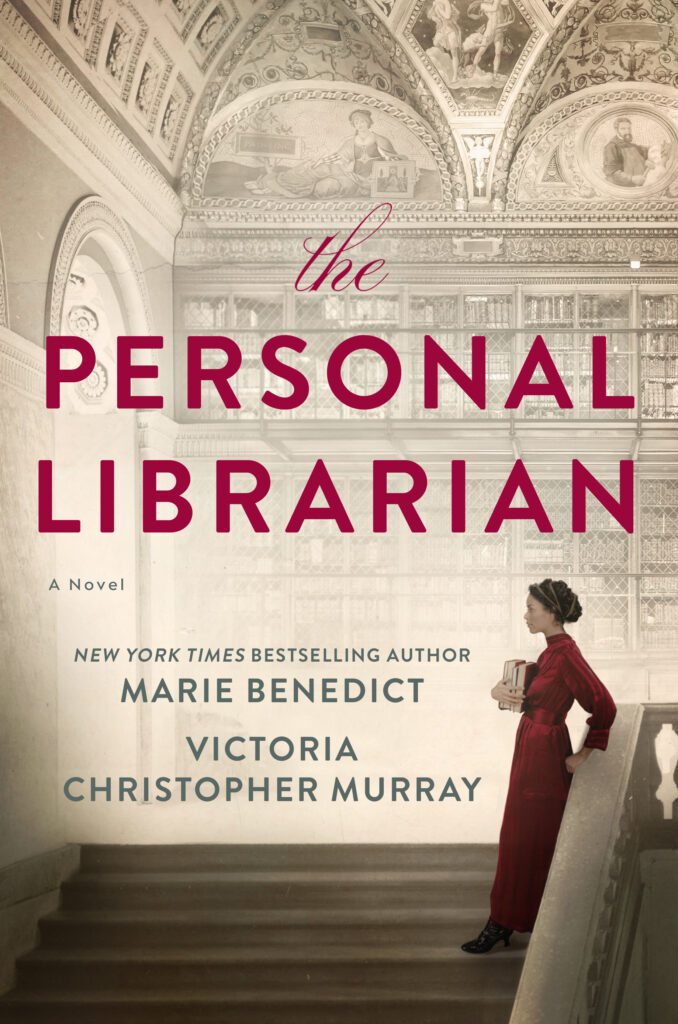
The Personal Librarian by Marie Benedict & Victoria Christopher Murray
The premise of this book is that Bella Marion Greener becomes Bella da Costa Green. Why? Because she’s a black woman living in the time of great prejudice and in order to give her children, the best future possible, Genevieve Greener believes having her children mascaraed as white people will allow them to live a richer life.
Bella was the real personal librarian to one JP Morgan back in the early 1900s. And she did indeed succeed at hiding her true heritage from her employer, as well as that of the other people in the book and art world.
I have to confess that I disliked this book. It was an absolute chore to finish, and when it ended, I was relieved to pick something else up. Now, if you, like my family, are wondering why I continued to read, the answer is simple: I hoped the book would redeem itself. It did not.
I had high hopes for this book. After all, who wouldn’t? We’re talking about a woman who hid her true heritage and identity in a time when, had she been found out, she would have paid severely for her trickery, but the love she held for her family and their needs propelled her to play a dangerous game each time she left her home. Not only did she accomplish this, she endeared herself so well to Morgan that he left her a substantial sum in his will.
Unfortunately, the book felt more like modern world language, issues, and relevant causes thrust on people who lived more than a hundred years ago. Now, before we go any further, let me be incredibly clear here. Bigotry, racism, & sexism have been alive and well for hundreds of years, too. The difference is how they were spoken about, and how they were handled.
At the end of the audio copy of this book, there is a note from the authors, and a little chat with both of them. They spoke about how they altered some dates in order to make them fit the premise of their story. No biggie happens all the time. They spoke about how they researched the people for this book. What they did not speak about was researching the timeframe in which this book occurred. Did they? I’m sure they did. One would have to, but I fear that they still attempted to thrust modern day issues into the wrong time in history.
Let me begin with the first thing that made me sigh with frustration, put down the book, and confirm something I already knew to be the truth. It occurred when Ms. Bella mentions a person is racist. Now, was the person? I suppose if they didn’t like people of one culture or skin type, and only like those who are exactly like them, then yes, they were. So what’s the problem? Readers, the word racism did not enter the English language until 1910, when a man lobbying for equality used the word for the very first time.
Further, in 1910, it was a brand new word with a brand new meaning. It did not race around the word like new words and fads do today because social media did not exist in 1910. Now to be clear about my frustration, Bella’s story opens in 1905, some five years before this word was first used.
Within the book, the topic of women’s rights comes up. Kate, one of Morgan’s daughters, is heavily campaigning for women’s rights, and here’s where things go cockeyed. Does this topic arise in order for the characters to talk about how they’d like the right to vote and decide things for themselves? I’m afraid not, rather it seems to be a topic for two purposes. The biggest being that women want the right to have a relationship with other women. Let’s be honest about the campaign for women’s rights in the early 1900s. Women did not get a say on who created the laws they had to live under. They couldn’t get leave their husbands unless they could prove he was having an affair or abusing them, and there was no guarantee they’d be able to take their children with them if they did divorce. Women worked long hours in poorly organized factories that were little more than death traps. They garnered little pay for their efforts, and weren’t allowed breaks, and were even locked inside the buildings to ensure they didn’t slack off. We’ve all heard about the Triangle Shirtwaist Factory fire, yes?
None of this is really mentioned, instead the news about women’s rights is brought up, and then the author’s use to it throw in a modern day issue about same-sex relationships. Did such things exist back then? Yes, but one was not open about it, because there were severe penalties if one was found out, and there’s no way someone would bring it up the very first time they met you.
In another portion of the story, Ms. Bella discovers she’s pregnant by a French man who is in an open marriage. He wants her to “take care of it”, and the next thing you know she awakes in a hospital. The story is told that a doctor took pity on the situation and gave her a “liver pill” which “fixed the problem” but also led to the infection Bella contracted. In a conversation between Bella and a friend within a London hospital, they discuss the abortion. My issue isn’t the topic at hand, but the lack of understanding of the times. No one in their right mind would have spoken about such an act in a public place with doctors and nurses around. Why? Because in 1861, if you were caught ending a pregnancy in the UK, you faced life in prison. That law wasn’t changed until 1928.
To further play into the idea of modern women’s rights, the authors choose to express Bella’s grief over the man she was in love with, not choosing to come be with her during this time. Often Bella’s mind goes back to this man, and only once do they mention the grief she faced over the loss of her child. Yet, in the author’s notes at the end, to help you understand what parts told were known and which weren’t, and they speak of Bella’s regret over her choice, and her constant mourning for losing her child. Yet, there’s no further mention of this loss in the book which seems farfetched to me, especially as a woman who has lost a child and knows the deep grief that is associated with it.
There were genuinely no redeeming features about this book, which saddened me. Bella’s story, her real story, is phenomenal to know she endeared herself to the Morgan, a supposed racist, and kept her family alive and fed by sacrificing her own freedom. Yes, freedom.
Bella could no longer associate with her father, who was petitioning for equality and black rights. Further, she never saw her beloved grandmother again once Mamma moved them out of DC. Doing so would have endangered their lives because in NYC they lived as white people. Bella had few choices about how she could live her life, despite living her life as a white woman.
Instead of honing in on this, on the dangers and perhaps the inner turmoil this woman must have faced daily, they turned her into someone I couldn’t even be bothered to cheer on throughout the story. Depicted as drunk often after the abortion, and making her a ruthless powerhouse in the art and book world came off more as a conniving, underhanded person you wanted to see get bested. It read as though Bella was collecting trophies for the pure sake of saying, “I’m a woman. Watch me.” Instead of collecting them because not only did her employer want them, but she shared the same love for the items.
We learn to appreciate people for who they are, male or female, white or black, American or African, by living through their stories. Watching them rise and fall, and then pick themselves up to keep going. I expected so much more from this book, and felt so let down.
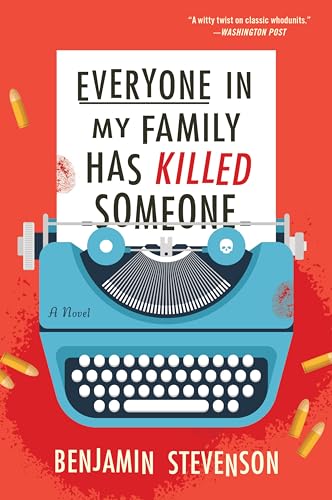
Everyone In My Family Has Killed Someone by Benjamin Stevenson
This book caught my attention with its opening:
Everyone in my family has killed someone. Some of us, the high achievers, have killed more than once. I’m not trying to be dramatic, but it is the truth. Some of us are good, others are bad, and some just unfortunate.
I’m Ernest Cunningham. Call me Ern or Ernie. I wish I’d killed whoever decided our family reunion should be at a ski resort, but it’s a little more complicated than that.
Have I killed someone? Yes. I have.
After that opening scene, it took a while to really get moving, and the author even admits this at the beginning of one chapter when he finally starts feeding you information. Being a relatively short book, it took me longer than normal to finish it, and I’m going to be brutally honest about why: it felt off. Wrong. Like someone was writing about some place they’d never been and used all the tv depictions they could recall.
Before you get irritated with me, hear me out. I lived in Australia, and I’m familiar with the oddness that can be its weather patterns. I’m familiar with ski resorts and snow on mountains. So why did things feel off? The book takes place at a ski resort, which based on the description, license plate number, and a few other minor details I’m guessing is supposed to be in Victoria. The family is summoned to a family reunion, and it’s mandatory everyone shows up.
Things are fine until a snowstorm hits. A snow storm so bad that it shuts everything down. A snowstorm, not one tourist who arrived at said ski resort, is prepared to weather out. Nor is said ski resort. Which is where my suspension of disbelief was cracked. I suddenly felt like this story was taking place up on Cradle Mountain, in Tasmania. Where many well-meaning tourists and backpackers attempt to flock to from interstate. The problem is, they make the poor assumption of presuming the weather at sea level is the same atop a mountain, and they are always wrong. They don’t listen to warnings and end up requiring precious tax dollars spent to airlift them from their stupidity.
Locals know a trip up up Cradle Mountain must be well prepared for. You cannot predict the weather regardless of time of year, but a ski resort? A well traveled, well advertised prosperous ski resort in Victoria with a camera that reloads every three minutes to tell you the weather was not prepared for a possible snow storm that would essentially lock its guests in the common areas because the slopes were too dangerous to use? I mean, sure it’s probable, but my experience leans in the opposite direction and with a slight change of this story’s location, I wouldn’t have batted an eye.
Having gotten that out of my system, the second thing that made me first snort, then chuckle, then choke was when the author made a character ask if they even had a mob in Australia. The conclusion was no, which is when I snorted so loud the room asked what I was reading. So, I read the line to them. They blinked. I blinked. My kids quoted the commercial that once played about how people were cheating the system and winning at McDonald’s Monopoly in Australia.
My husband said, “You sure the author is Australian?”
I nod. “No, yeah.” (Which is Australian for yes.)
There was an incoherent muttering of words in response. I mean, I know one doesn’t want to advertise a country who survives on tourism as having crime families, but honesty is often the best policy just in case your readers are familiar with the location of your story. Now, in defense of the author, I will admit that they aren’t called the mob in Australia, and I will leave it at that.
Now that I’ve gotten my complaints out of the way, I want to confess that once I could let it go; I jumped into the book, and once the speed got going, it was difficult to put down. Would I read this book again? Yes, happily. In fact, I got to the end and said, “Okay, so ignoring the hiccups, I really need to read this again and better follow the breadcrumbs.”
Also, I thoroughly admired the bookends this author created in the opening and closing of his book.
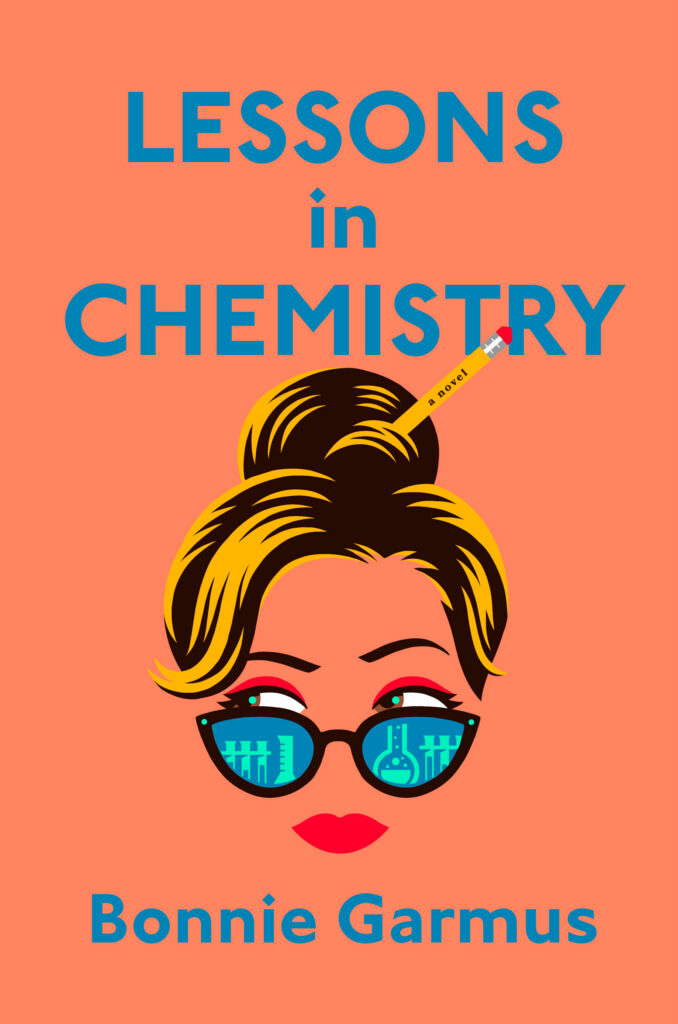
Lessons In Chemistry by Bonnie Garmous
When I first put this book on hold at my local library, I was 425th in line, and I nearly bought it a few times as my impatience with the wait time grew.
The book takes place in the late 50s and early 60s with the premise that women’s rights are not taken seriously. The main character, Elizabeth Zott, was raised by charlatan parents who preached Jesus to garner money. Her father is doing time for killing someone to heal them. Her mother is in Brazil avoiding the tax people, and her brother is dead.
Elizabeth’s view of the world is tainted from the get go because of her parents’ lack of care and understanding for their own children. Their false pretenses about how to earn money, and because their children wouldn’t partake in the shenanigans. Zott’s life gets worse when, at college, she is raped because she thinks outside the box. When no one cares what the man did to her, only that she stabbed him with a pencil, it further taints her perception of the world.
Years later, when Zott’s life is turned upside down, she finds herself an unwed single mother. A black mark as far as many people are concerned, and the cost is her job. Zott never wished to become a mother. She was a scientist, and anything that impeded that wasn’t for her. When she finds out her daughter’s lunch is being “stolen”, she confronts the other child’s father who works in a tv studio. He begs her to come work for them on a new show called Dinner at Six.
Zott turns the half hour show into a series of chemistry lessons for the housewife and even provides a shopping list at the end of each episode so they can all cook together the following day. However, she and her supervisor are led to believe that the show is failing miserably, and that if she doesn’t conform to his ways {read tight clothes and acting brainless} she will be fired. Through a series of events Zott, and her boss, learn the truth.
Now, I’m going to be honest, the book was a quick read, and despite its rapport, I found the story flawed. I was eager for the interview at the end of the book to see if, perhaps, the author would cover some of those things and settle the questions in my mind. She did not.
To begin with, Elizabeth Zott is presented as an incredibly bright woman who never gives up, and is phenomenal in chemistry. Her driving force is supposed to be she wants a place at the table overrun with men. So what’s the problem? Zott is most often written as brighter than anyone else in the room. She takes things literally and struggles with some pretty basic things in life. As an example, she believes she is a chemist, and everything else is preventing her from being the scientist. She believes in either or not an “and” mentality. I will also admit that through the entire book I felt like Zott was written as though she was likely on the Autism Spectrum.
Every man in authority, save for two, in the story unzipped his pants to prove he was better than Zott. This was supposed to be a book about women’s rights, but did so by vilifying every male. Again with the either or mentality.
I enjoyed watching Zott overcome her struggles, but based on all the ill done building up to the end of this book, the ending did not match the rest of the story.
I think it’s one of those books that once you’ve read it and are prepared for the poor portrayal of some characters, you can read it again and enjoy the story more because you expect the imbalance. Having said all that, I found the book an easy read and difficult to put down. My absolute favorite character, though, was Six-Thirty, the dog.
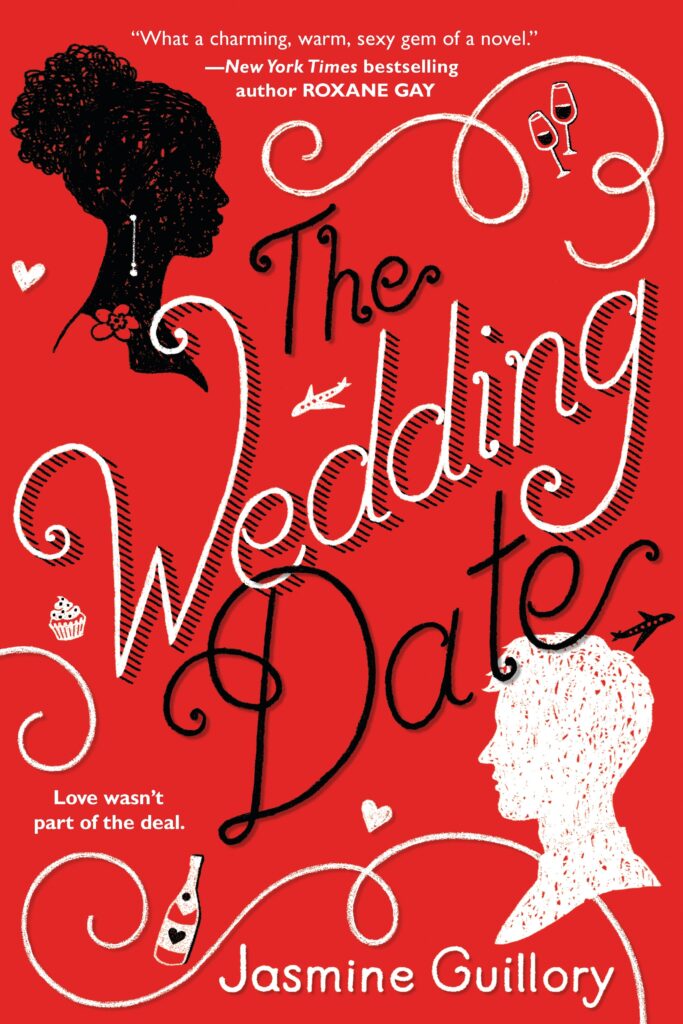
The Wedding Date by Jasmine Guillory
Thanks to a power outage, Alexa Monroe ends up trapped in an elevator with Drew Nichols, and ends up agreeing to be his fake date to an upcoming wedding. His ex is marrying his best friend, and he doesn’t want to show up without his plus once. Somewhere between the wedding and Drew’s flight back to Los Angeles, he and Alexa have a grand time and secretly fall in love with the other, but they take the rest of the book to admit their feelings to each other.
The odd thing about this book is that the author made Alexa black, and then angry when Drew didn’t inform her she’d be the only black person at an upcoming wedding. I’m not black, so maybe I’m not seeing this as well as I could/should, but personally, people are people regardless of their skin color, and unless you’re walking into a group of people, you know are mean-hearted and racist; I find it odd to think you’d need to be warned. Admitted, while living overseas I entered a lot of a difficult situation with some petty people, one of which who chased me around the gathering telling me all his “jokes” about my culture. They were not funny, and in reality showed his own stupidity, vulgarity, and lack of true love despite his proposed faith. Which is why I could understand wanting a warning if you knew you were walking into the lion’s den, and of course the author included a couple of people who were ugly hearted racists. So perhaps that was the reason? It just feels racist, to me, to say, “Hey just want you to know you’ll be the only person around who, well, you know, looks like you.” Bear in mind, I see people as people regardless of their skin color, culture, nationality, or life preferences, and at heart most people so my viewpoint is likely skewed.
The story was a predictable fluffy romance. I will give a word of warning that it included some language and a few scenes were rather descriptive.
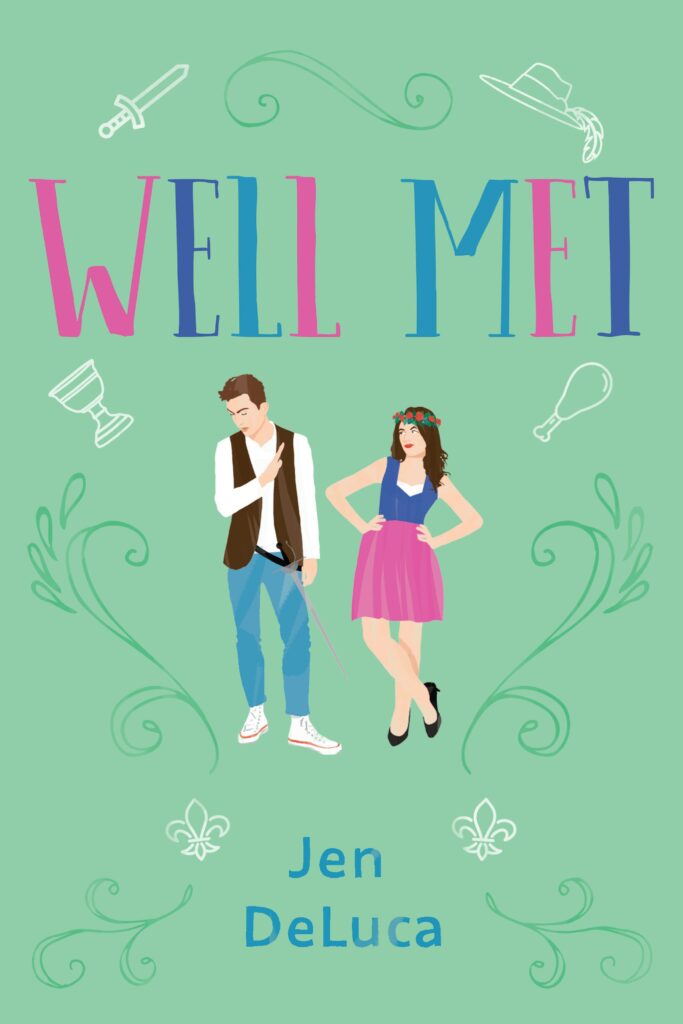
Emily is in the small town of Willow Creek, Maryland, helping her sister and niece, who survived a horrific car accident. While her sister has been laid up with a broken leg and therapy, Emily has devoted as much time as possible to being the best aunt she can, which is why when her niece signs up to be in the local Renaissance Faire, and Emily is told the only way her niece gets the gig is if she also signs up, Emily does. Which is where she meets Simon and decides instantly that they are enemies. She’s not a fan of his brisk nature and take control attitude, not to mention he runs the faire like it’s a life or death mission.
Except, it is for Simon. It’s his older brother’s legacy, and Simon will do anything to keep the faire up and running, to keep the memory of his brother alive in the small town of Willow Creek, even if he doesn’t realize he’s going about it in all the wrong ways.
The story follows a predictable enemy to lover trope, but the underlying story was enjoyable. I will warn there’s a bit of language in this book, too. Of the three romance novels suggested to me, though, this was my favorite.
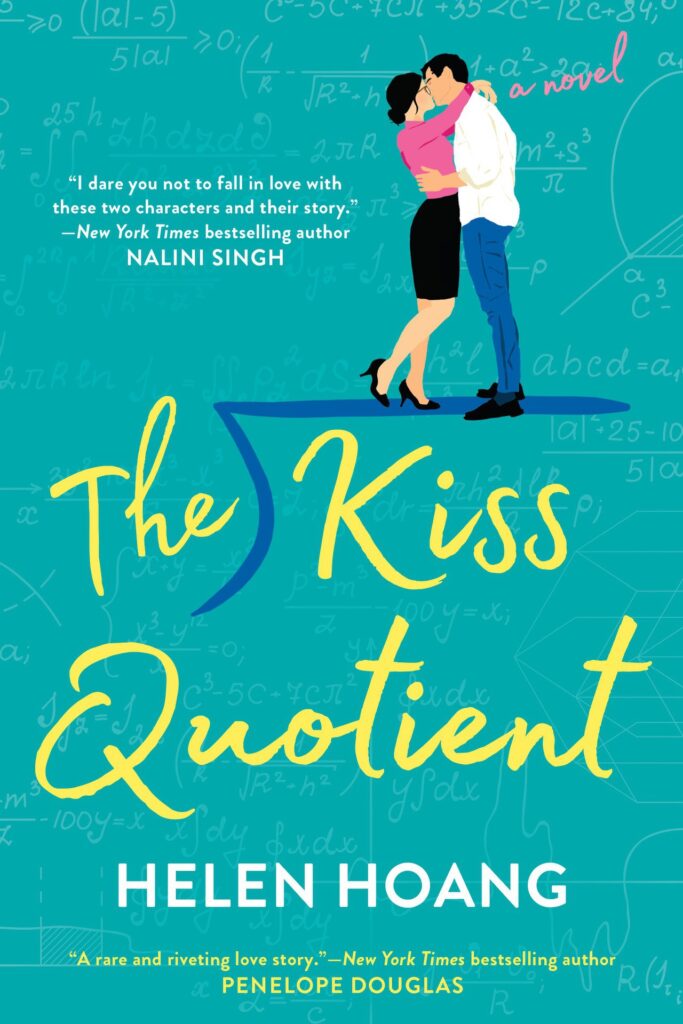
The Kiss Quotient by Helen Hoang
Before I say much about this story, I’m going to admit that I misread the “spicy scale” when a friend suggested books to me. Thus, I was a little surprised by the level of language and some scenes in this book. It’s not one I’d have taken home had I flipped through it while in the store or library.
Stella Lane loves math because in her mind, it is the only thing that unites the universe. Stella also has autism and will do anything to make her mother happy. Except, what her mother wants is for Stella to get married and have babies. Stella has never dated a guy she’s liked, or who has liked her either, and doesn’t know how she can obey this command her mother has given her.
Then, a jerky co-worker walks in and tells her she’d be more desirable if she had practice with guys. Stella ends up calling a male-escort service and asks the guy if he will be her fake boyfriend so she can learn how to woo a man. Except Stella falls in love with Michael, and she’s not sure what to do about. He has rules he follows, and she’s scared the obsession factor of her autism might break all his rules when they are done being fake boyfriend and girlfriend. Plus, she doesn’t want Michael to know she has autism, because she doesn’t want him to pity her or make her be someone she’s not.
What Stella doesn’t know, is that Michael is already breaking a lot of rules just by agreeing to be her fake boyfriend, but his mother has outstanding medical bills from her treatment for lung cancer which is why he’s in the escort business to begin with. And now he’s afraid to tell Stella he’s in love with her, because she cares about him on a personal level and not on a business level like most of his clients. Michael is already familiar with autism and when Stella is overwhelmed with excess noise and new people, he connects the dots himself, but it doesn’t change how he feels about her.
Can either of them find the courage to tell the other how they feel?

Despite my negative depiction of some books I read this month, the only one I truly didn’t like and would not be likely to reread is The Personal Librarian. I may have wildly high standards for historical fiction, because history is something that has already happened. While we may each see it from different points of view, we cannot change what happened, we can only learn from it.
I find the stories of people who lived before me, and paved ways for women, people of color, cultures that are not my own, and even the future world that my children will live in remarkable. Yes, there are many people in history I am grateful to have never met, and know they did unthinkable things to many humans, and hope we can only learn from these horrors. Still, when I read history to my children, and taught it, we did not coddle the truths and horrors. We spoke about them from a perspective of attempting to understand what life must have been like for those less fortunate, and how those on the more fortunate side of the line couldn’t see the wrongs being committed.
One thing we often learned is that regardless of which side of any given historical event we read about, most people were simply doing their best to survive. Many rose to the challenges and survived them, while others rose to the occasion and did their best, but did not always win. We learned happy endings may not exist in history, and when they do, it’s often not in the generation that endured the difficult times, but in the future generations who reap the rewards of those who paid the steep price. Maybe it is this attitude, this understanding, that makes me hold historical fiction to a much higher standard than the average book.
Regardless of my opinion on any book, I hope it doesn’t stop you from choosing to read them and make up your own mind.
